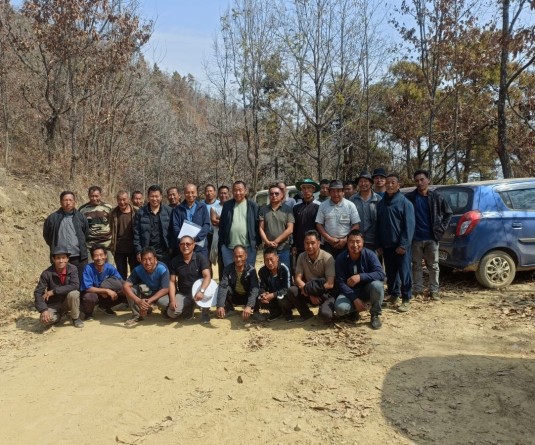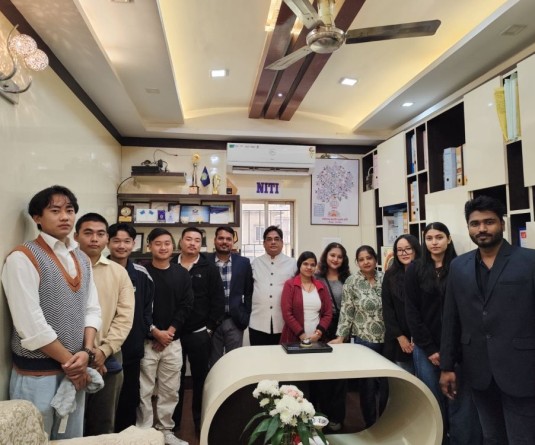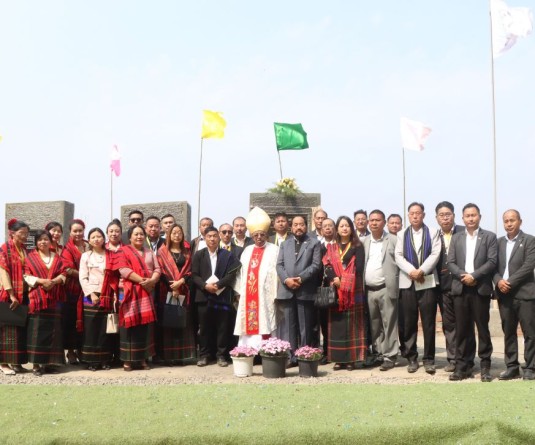
Naga Scholars Association organizes its first webinar ‘Panel Discussion’
Dimapur, May 31 (MExN): The Naga Scholars Association (NSA) organized its first webinar ‘Panel Discussion’ on the topic ‘Racial Discrimination in times of COVID-19 in India’ on May 29 with prominent personalities from the northeast region who have been dealing with the issue of racial discrimination at national and international arena.
According to a press release received on May 31, panelist Dr Alana Golmei who is an academician, activist and humanitarian, started by highlighting some of the many cases of racial attacks targeting people from the northeast region even in such challenging times like COVID-19. Citing cases of denial of entry into grocery stores, eviction from rented accommodations, health-care workers being targeted, forcible and illegal quarantine, sexual harassment, denial of wages, physical assault and abuse on social media, she further stated that many of the cases mentioned above have gone unreported or have not led to FIRs being lodged due to fear of majoritarian backlash.
One of the main concerns which Dr Golmei raised was that the Government must stop seeing these issues as mere isolated cases but rather start enforcing stringent prosecution to those who are committing racial attacks to the north east people having mongoloid features. She also emphasized on the need for the North East state governments to coordinate well and make sure that none of the people are made to suffer in these challenging times. Moreover, the returnees coming home from different cities should be organized more carefully and with human sensitivity.
The second panelist was Binalakshmi Nepram, head of Global Alliance of Indigenous Peoples and winner of several prestigious national and international awards pointed out that structural inequalities like racism in India, can be tackled by developing an understanding of its historical roots. Nepram stated that racism can be traced back to the ‘coerced integration of the North East region into the newly formed country of India,’ ‘the racist policy of AFSPA’ being implemented in the region and the exclusion of the history of the Northeast from the textbooks of India, among others.
Stating that India is a signatory to the International Convention on the Elimination of All Forms of Racial Discrimination (ICERD), Nepram stated that India “must abide by the principles outlined in the declaration and should set up a National Committee to eliminate Racial Discrimination in the country.” A multi-level approach at regional, national and international platforms is the need of the hour, she added.
The third panelist, Dr Kaustabh Deka who teaches political science at Dibrugarh University, critically analyzed the hegemonic discourse on the NE such as the formation of a normative category called the North East as one homogenous category in the ‘mainland’ imagination and the framing of the identity movements and resultant turmoil occurring in the NE as either a development deficit or a national security issue.
Finally, in response to the Chair asking about acts of discrimination carried by people of the NE themselves, Kaustubh replied that racist tendencies exist in all societies but the effect of such tendencies is very different when one factors in large power imbalances. Furthermore, despite the narratives of urbanity and cosmopolitanism in metropolitan areas being accepting of differences, he viewed that rural areas of the NE, despite their imperfections, are more alive to syncretism and adaption.
In conclusion, the chairperson Dr Zuchamo Yanthan stated that the panel discussion came up with strong evidences that there is racism in India and for which India must accept the reality and find ways in addressing the challenge. He said that though Government of India is playing its role, yet, it still requires more sensitization about NE India and protection of its people, while adding that there is an urgent need in India for enactment of anti racial law.






